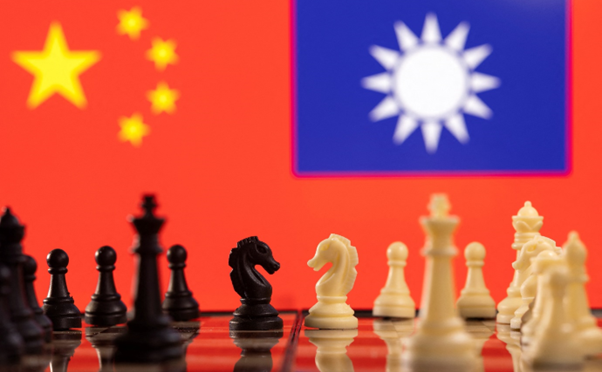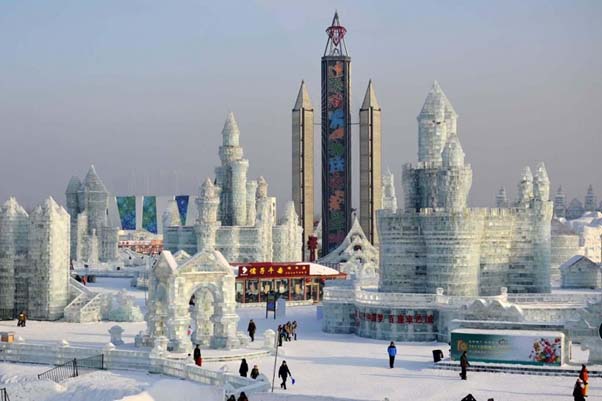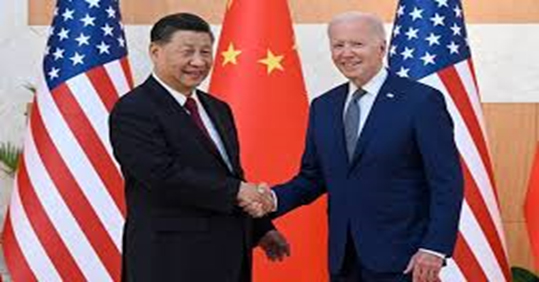The Taiwan Crisis
Posted on : September 19, 2022Author : Ritwika Dutta Roy

Is independent Taiwan going to fall under Communist China eventually making US give up its strategic ambiguity and highly risking US position in the Global Capitalist Market?”
Taiwan had been separated from China with its rise as one of the Japanese colonies since the year 1985. However, in the post Second World War era, it was handed over to the Nationalist led Chinese Government who were eventually drove by the Communist forces in 1949 but the Communist China failed to capture China’s hotbed, Taiwan. The United States always took a very ambiguous position in Taiwan. US “Strategy of Ambiguity” was a way to facilitate stability and maintenance in Taiwan Strait.
In the contemporary geopolitical scenario, Taiwan once again faces a major dispute from China. US President, Joe Biden’s repeated declaration on Washington’s full support over Taiwan, in case China tried to attack has recently made the strategic ambiguity even more evident. According to the law passed by the Congress, the US is required to provide a strong military supply in order to help Taiwan build a strong military base to defend Beijing’s attack. However, US continues the policy of strategic ambiguity both to ward off the Chinese invasion and also to demoralize Taiwan from formally declaring independence. Nevertheless, this is now a bilateral discussion in Washington that of there should be a shift to the policy of “strategic clarity” given Beijing’s belligerent approach towards cross strait relations. On the other hand, Russia’s declaration of war on Ukraine was one of the driving forces that created a tension that China might rise as one of the invading powers by declaring war against its smaller neighbours.
US policy on Taiwan has always pinned on a diplomatic note. China’s “One China Policy” highlighted US diplomacy when Washington recognises Beijing, but only acknowledges the Chinese position that Taiwan is a part of China. It leaves it to the two sides to work out a solution, while opposing any use of force to change the status quo.
Recently, Taiwan’s President Tsai Ing-wen, was briefed during a visit to a naval station on Penghu, an archipelago of several dozen islands off Taiwan’s western coast. Taiwan’s President apprised the self-ruled military units to wind down, despite the daily instigations with warplane flights and several warship operations from China in order to restrict Beijing from provoking a war. China continued with the military pressure on Taiwan. House Speaker Nancy Pelosi visited Taipei in early August. Beijing initially responded with large military drills in the waters and skies near Taiwan. It fired missiles over the island, some of which landed in Japan’s economic zone, resulting in a serious upsurge, while also sending warships and planes toward the island in large numbers.
However, there is a section of society in Taiwan that embraces the unification of China-Taiwan. Surveys reveal that up to 12% of the country supports unification with China. At a restaurant in Taipei a few pensioned men at their 70s who are the inheritors of Chinese nationalist grand sires, were spotted protesting for the integration of Taiwan and China considering Taiwan as a part of the same. Although a very limited section of the Taiwan society is saying yes to “One China”, still this stubborn segment suggests a sizeable group of people in Taiwan are not being pushed towards independence like so many of their compatriots. Some analysts also declare that this group could be diehard enough to vote the pro-China candidates. According to Jeremy Huai-Che Chiang, a Taipei-based analyst, lately people’s understanding of unification has changed. He deduced that people view the prospect of amalgamation through the prism of Hong Kong. Taiwanese politics are mostly witnessed as a skirmishing force by China and accused the ruling party for its separatist ideologies leading to a constant tension between the two nations. The nationalist Kuomintang (KMT), the main opposition party, has an ageing base and is struggling to regain popularity while staying true to its roots. The segment of the pro-unification parties including some linked to the Bamboo Union alleged crime syndicate, is often found harassing the pro-Taiwan delegates and eventually giving rise to a number of disproportionate events. Pro-unification people are generally thought to be concentrated among older generations, are probably KMT voters and are typically men. Chiang even commented that there is another minor section with a Chinese Nationalist origin who are mostly coined as the “defeatist”, frequently Taiwan of getting defeated by all- powerful China.
Taiwan’s defence ministry said it detected 23 Chinese aircraft and eight Chinese ships operating around Taiwan on Sunday, as Beijing continues its military activities near the island that included seven Chinese aircraft that crossed the median line of the Taiwan Strait, which normally acts as an unofficial barrier between the two sides, it added.
On the other hand, vacation vibes were disrupted by a series of explosions. Visitors to Pingtan island, a popular destination with resplendent sea and reefs that attracts thousands of visitors every summer, have been granted a front row seat to China’s latest fury at Taiwan. Reports suggest that tourists were found enjoying the holiday hum on the eastern tip of island unless in the afternoon beach fun was perturbed by the boom of missile fires across the Taiwan Strait by petrifying the tourists. Experts dis not second with the idea of likelihood and timing of a Chinese invasion of Taiwan. The top US military commander in the Indo-Pacific warned that an invasion is impending while others interpret President Xi’s 2017 Party Congress Report as setting a deadline for reunification by 2049. In a report for the Brookings Institute, Senior Fellow Ryan Hass asserts that China’s ultimate objective is “not invasion but instead a process between China and Taiwan authorities to negotiate the formal long-term political relationship across the strait. Michael Shuman views this as a sheer an influence of Vladimir Putin compelling Beijing’s attempt to reclaim Taiwan by force. He concluded saying that autocrats around the world have grown overconfident by assuming to have a global control without facing any serious challenges by the States and its allies. Others disagree with that assessment though. A recent United States Institute of Peace (USIP) publication states that Chinese leaders are convinced that Washington has an immutable relationship with Taiwan based on statements made by successive US presidents and the assumption that American policy makers believe they have a commitment to defend the island from a Chinese attack. Referring to the sanctions placed against Russia, it also asserts that Beijing would be wary of facing an economic backlash from the international community at a time when the Chinese economy is experiencing stagnant growth. Summing up the situation, a fellow from the Atlantic, Harlan Ullman writes, “China could infiltrate the political parties and Taiwanese government and using influence operations to change public support which might provoke Taiwan to surrender and settle for the unification.
References-
- The Taiwan Relations Act
Author(s): Shelley Rigger
Source: Asia Policy, OCTOBER 2019, Vol. 14, No. 4 (OCTOBER 2019), pp. 11-17
Published by: National Bureau of Asian Research (NBR)
Stable URL: https://www.jstor.org/stable/10.2307/26867608
Ritwika Dutta Roy
Intern, Asia in Global Affairs.
————–




